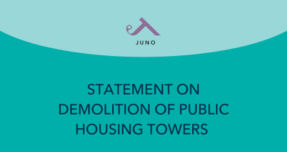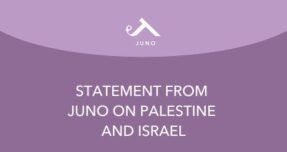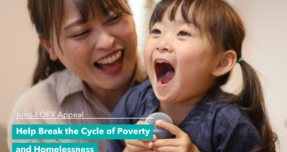We support a diverse range of women and non-binary people who are experiencing homelessness primarily due to family violence and a lack of affordable and suitable housing in Victoria.
We provide homelessness and specialist family violence support, as well as working with individuals experiencing early signs of being at risk of homelessness and women working on long-term goals for economic independence.
Women and non-binary people’s experiences of homelessness are fundamentally different from that of men. We know that support and recovery needs require tailored, specialised responses that reflect the unique experiences of women and non-binary people (and their children) to have the best possible chance of maintaining permanent, safe housing.
Juno welcomes all women (trans and cis) and non-binary people. Self-definition is at the discretion of the individual.
In Victoria, if you’re experiencing homelessness or a housing crisis, the first step is to contact a local Homelessness Access Point. An Initial Assessment and Planning (IAP) worker will assess your support needs and then refers you onto Juno or other specialist support services. As there is no direct referral process, clients come to us through Access Points. Find a Victorian Access Point.



